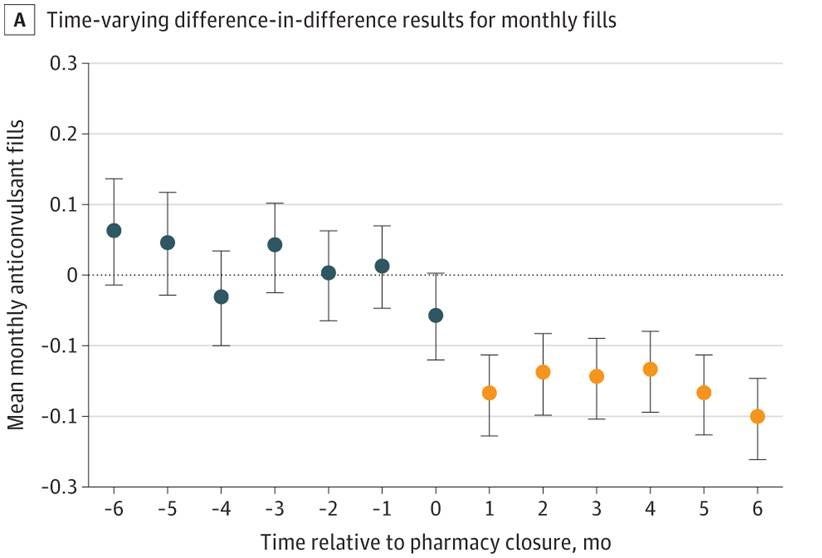Friday Shorts and Follow ups: Segregation and mental health, telehealth, pharmacy closures, and GLP1s and arthritis
November 22, 2024
1. Those who live in areas with more residential segregation have more mental health issues in pregnancy.
Researchers at Kaiser Permanente of Northern California studied medical records of over 200,000 members who delivered babies from 2014-2019 and found that those who lived in communities with a high degree of racial segregation were much more likely to suffer from depression or anxiety during pregnancy and postpartum. This difference remained even after statistical adjustment factors such as income, substance use rates, and education. Employers should be aware that those who live in segregated neighborhoods are at higher risk of mental health issues in pregnancy.
2. Primary care telehealth associated with less low value care
Researchers in JAMA Network Open report that primary care practices with higher rates of telehealth visits had lower rates of certain low value services, including imaging tests for sinus and back symptoms, vitamin D testing and cancer screening tests for those who had “aged out” of recommendations (for instance, cervical cancer screening is not recommended over age 65). The researchers reviewed medical records of 577,000 patients. Primary care practices that have embraced telehealth visits might also be ones that are more committed to evidence-based practice.
3. Pharmacy closures and medication adherence
Changes in medication fills in counties with closures of community pharmacies
Source: Anderson, et al JAMA November 4, 2024
Researchers in JAMA reviewed prescription fill rates of medications to prevent seizures among adults who had previously filled such prescriptions at a community pharmacy in Colorado which closed between 2018-2022. They found that such patients were substantially less likely to fill prescriptions promptly after their local pharmacy closed.
The major chain pharmacies have announced plans to close hundreds of pharmacies over the next year, so employers should be aware of potential adherence issues over the coming months and years. Mail order delivery of chronic disease medications helps increase medication possession ratio, although this also can decrease the viability of local pharmacies. Ninety-day supplies may also help improve adherence.
4. Semaglutide lowers arthritis knee pain
Source: Bliddal, et al New Engl J Med October 30, 2024
Severe knee osteoarthritis is highly correlated with obesity. A 68- week randomized trial with over 400 obese participants published in the New England Journal of Medicine showed that those randomized to semaglutide treatment were highly likely to complete the trial (87% vs. 78% of those on placebo), lost substantial weight (13.7% compared to 3.2% in the placebo group), and had statistically significantly less pain on a standardized scale.
5. Tradeoffs podcast on treatment of transgender youth
The Tradeoffs podcast, hosted by Dan Gorenstein and broadcasting from the University of Pennsylvania, had a thoughtful episode on treatment of transgender youth last week, anticipating the Supreme Court’s hearing on a Tennessee law banning gender affirming care for minors. Here is a link to a previous post pointing out that gender affirming surgery on those under 18 years is very rare, and another post on mental health risks for transgender youth. The podcast references a JAMA Pediatrics article I discussed earlier this month.
Hope you have a good weekend.




Jeff - interesting observations this week. Question for the GLP-1 finding - is it the drug that had the effect or the weight loss that had the effect on knee pain. The way you worded the comments if
Would appear the drug has an effect on the joint to reduce pain. But isn’t the reduced knee pain the result of the weight loss - which could occur with better eating habits